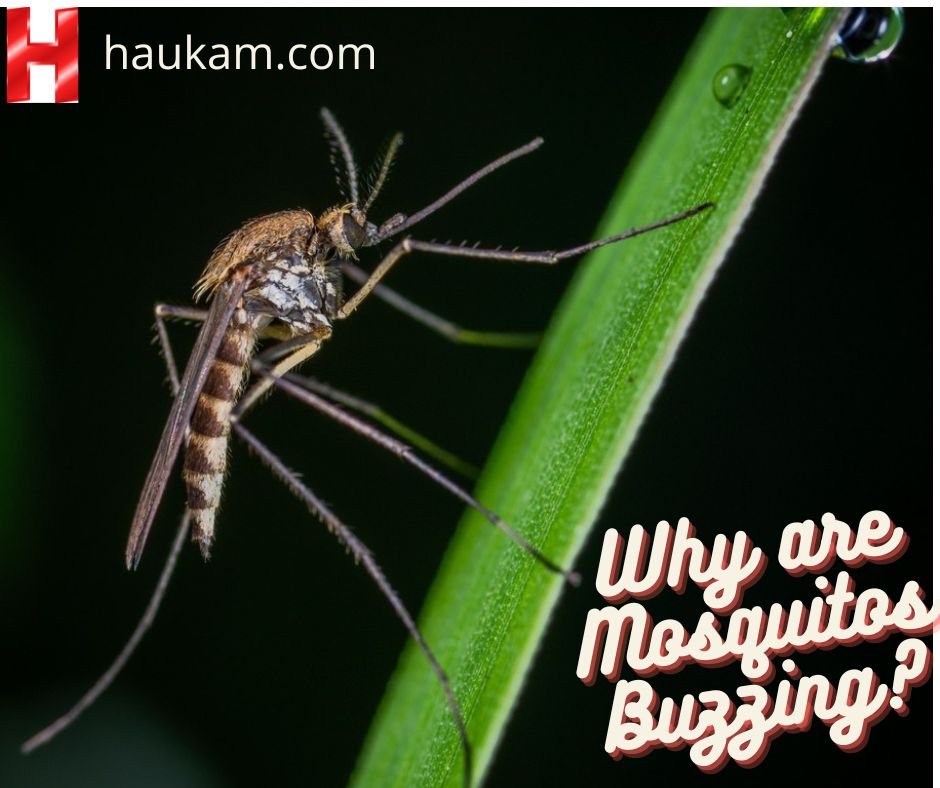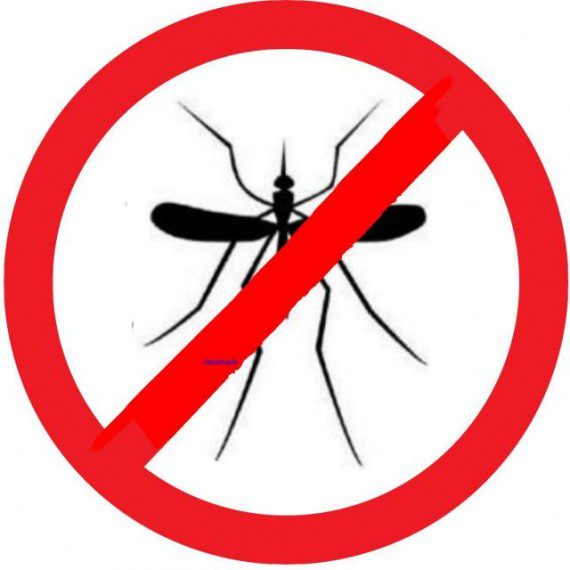Why are Mosquitoes Buzzing? Who is often bothered by the sound of mosquitoes? When we are going to sleep at night, we often hear “nging” sounds coming from mosquitoes around us. Actually, where does the “nging” sound come from? The sound of “nging” or hum we hear may come from flapping wings produced by female mosquitoes.
Male mosquitoes and female mosquitoes have a very different life. Male mosquitoes usually feed on flower nectar, and do not care about humans. Whereas female mosquitoes need blood to have enough energy to produce eggs. When flying, the female mosquito flaps its wings about 500 times per second.
However, even for humans the sound of the buzz is disturbing, it turns out not for male mosquitoes. The sound of humming from female mosquito turns out to be an attraction for male mosquitoes. That sound was produced when they were looking for a mate to breed.
Why are Mosquitoes Buzzing?
Male mosquitoes buzz to show their manhood. Based on recent studies, almost 70 mosquito pairs flap at a basic speed, making them sound harmonious in a certain way. In Aedes aegypti mosquitoes, the hum can sound louder, because male mosquitoes change the speed of their wings to twice the initial frequency to match their females. Thus, the sound will be very disturbing, and the reason why are mosquitoes buzzing.
Of our many limbs, we most often hear the buzzing of mosquitoes around our ears. Why do they like to buzz in our ears, huh? Before sucking their prey, female mosquitoes aim for body heat and carbon dioxide. When foraging, female mosquitoes frequently approach the human head because around the human head there is a lot of carbon dioxide gas.
This carbon dioxide gas stimulates female mosquitoes to start looking for hosts, so they fly back and forth to find the source. The human head is the part that emits the most carbon dioxide, while the ear is the moistest part and is very much liked by mosquitoes. Moreover, the human ear has the most constant and highest temperature, close to the core temperature of the human body, so that mosquitoes are happy to be nearby.
Why Do Mosquitoes Suck Blood?
Of the 3,500 mosquito species in the world, the mosquito that sucks blood is just a female mosquito. Female mosquitoes need protein and nutrients in the blood to ripen their eggs. Human blood is a perfect “supplement” or “vitamin” for mosquito eggs. In addition to being a nutrient, blood is also a refreshment for mosquitoes on hot and dry days. Dehydrated mosquitoes become more aggressive to suck human blood compared to mosquitoes that have access to water.
The Male and Female Mosquitoes
Then what about the male mosquitoes? Aren’t they sucking blood ? Male mosquitoes only have a life cycle of about one week to ten days. They don’t need blood to live, they can survive by sucking nectar from the plant. Thus, these male mosquitoes are more prevalent around gardens or plants.
Does a female mosquito also suck nectar? Female mosquitoes also suck the nectar of plants. Blood is used in the maturation process of their eggs. In addition, male and female mosquitoes also have differences in body anatomy.
Male mosquitoes do not have certain organs that function in sucking blood like female mosquitoes. As previously known, female mosquitoes aim for body heat and carbon dioxide. Female mosquitoes have an upper jaw organ to detect the carbon dioxide released by their prey (both humans and animals) when exhaling.
They can also detect body temperature and even the smell produced by the human body. They can use the taste sensors on their feet to determine if their prey contains sufficient blood. Female mosquitoes also have small, sharp needle-like parts that allow them to penetrate the skin.
Once the “needle” is stuck in the skin, the tube in his mouth drains blood from nearby veins. These parts work so well that sometimes we don’t realize that they’re biting us, until finally a bump comes up. The life cycle of female mosquitoes themselves is longer than that of male mosquitoes, which can reach several months, and they can hibernate in winter.
Why Human are More Targeted?
Humans are more often targeted by mosquito bites, because humans have a thin layer of skin and are not covered with a lot of hair or fur like animals. According to some researchers, factors such as a person’s genetics and dietary habits play a big role in determining how “delicious” their blood is to mosquitoes.
Human skin sometimes releases unique scents that can attract some mosquitoes. It is estimated that there are more than 400 chemical compounds on human skin that trigger mosquitoes’ interest in ingesting and sucking someone’s blood. Lactic acid in sweat is the main attractant for mosquitoes. Mosquitoes also prefer people who use dark colors, such as black. Sometimes, mosquitoes also tend to prefer the human foot part, because the foot contains bacteria that release scents that mosquitoes like.
In a research, mosquitoes were twice as interested in pregnant women. This is because pregnant women who enter the final gestational age exhale as much as 21 percent more than people who are not pregnant. In addition, pregnant women have body temperatures that tend to be hotter than people who are not pregnant. These higher temperatures release more volatile substances on the surface of the skin, which can attract mosquitoes.
How to Avoid Mosquitoes?
Not only is it annoying, mosquitoes can also carry some deadly diseases. Therefore, we need to avoid or expel it.
We can avoid mosquitoes in many ways. The simplest way to avoid mosquitoes is to apply light colors to the things we wear, such as wearing light-colored clothes or using light-colored wall paint. As is known, mosquitoes prefer dark colors, so light clothes tend not to be preferred by mosquitoes.
Mosquitoes have the ability to smell the scent of sweat or the smell of someone’s body that attracts them. They can recognize the scents of lactic acid, ammonia, and other compounds that come out of sweat. In addition, bacteria and sweat mixed in the skin can create a distinctive smell that attracts mosquitoes.
Thus, we need to keep our bodies clean, especially after a sweaty state such as after exercise, for example by bathing. But sometimes a bath is not enough, because there are many factors, including bacteria on the skin, that make a person’s body odor different and attractive to certain mosquitoes.
What helps mosquito bites?
In this case, the use of anti-mosquito drugs or lotions can also be a good choice. We can also use natural mosquito repellents, such as eucalyptus, lavender, lemon, orange peel, and lemongrass.
In regard of mosquito habitats that are usually around plants and gardens, so it is important to always take care of plants so that they are not too lush. For example are by trimming plants, bushes, or grass that have been grow too high. In addition to adding to the beauty of the garden, it can also reduce the number of mosquitoes that nest on plants.
Female mosquitoes need water for the propagation of their eggs. Thus, we need to eliminate potential puddles around us so that they do not become mosquito breeding sites. For example, by cleaning the gutter to avoid water splashing, throwing rainwater connected to the pot or bucket, or closing the water reservoir so that mosquitoes can’t enter.
Okay, we think that’s all friend. We hope that after read our article here, you got the answer of why are mosquitoes buzzing. If you like our article, don’t forget to share.










